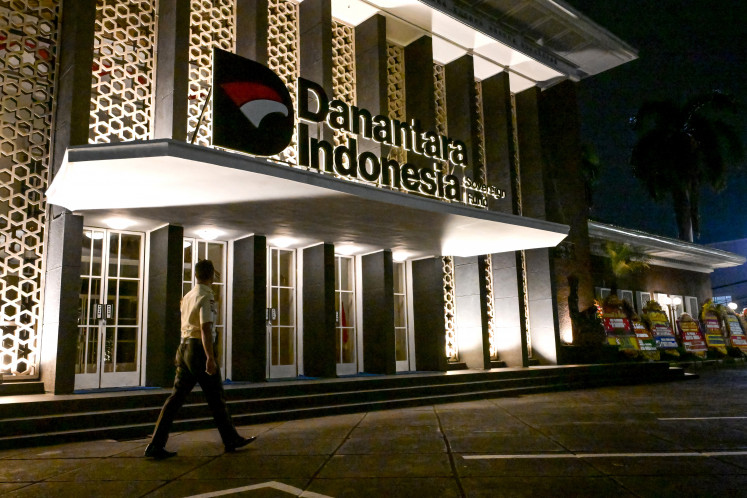Fish and sugar prices rise uncontrollably, causing anxiety
Bad weather has hit East Kalimantan, causing the price of fish to soar since the start of the year
Change text size
Gift Premium Articles
to Anyone

B
ad weather has hit East Kalimantan, causing the price of fish to soar since the start of the year.
Fish prices doubled in traditional markets in Balikpapan and other cities such as Penajam Paser Utara, Samarinda, Bontang and Kutai Kartanegara.
Prices for local fish such as mackerel scad and Indian mackerel rose from Rp 9.000 to Rp 30,000 per kilogram.
Sari, a fisherman from Penajam Paser Utara, said the waves during December 2009 until January of this year were 2- to 3-meters high. "Many fishermen could not return home because of the high waves," Sari told The Jakarta Post on Sunday.
Meanwhile, the soaring price of sugar at traditional and modern markets in Surabaya has worried residents, forcing them to reduce the consumption of the commodity.
As of Friday, the price of sugar at most markets in Surabaya and areas in East Java such as Sidoarjo, Gresik and Malang rose to Rp 12,000 (US$1.2) per kilogram. It was previously sold for between Rp 9,000 and Rp 10,000 per kilogram.
Rising prices have caused people in the areas to be anxious. However, residents continue to buy the expensive sugar as it is a necessity.
The price has also had an impact on food and beverage producers.
"It's not easy for producers as sugar constitutes 15 to 20 percent of the composition of our products," Yapto Willy Sinatra, the chairman of the East Java branch of the Indonesian Drink and Food Producers Association (GAPMMI) Chapter, said Friday.
Producers are left with two choices: either decrease the sugar content of their products or pass the cost on to the consumers, he said.
Members of East Java legislative council's economic affairs commission have urged East Java Governor Soekarwo to take decisive steps to solve the sugar price issue.
Commission chairman Renville Antonio said the East Java administration needed to regulate sugar trade in the province to pre empt major suppliers taking control of the market.
"The administration has a right to decide the maximum price for sugar and to punish those who violate the regulation. This move has to be taken to avoid social unrest," Renville told the Post.
Renville also added the commission would soon coordinate with a House of Representative commission to discuss sugar pricing regulations.
East Java administration economy and development affairs assistant Chaerul Djaelani said the province's sugar production reached 1.1 million tons in 2009. The demand for sugar in the province was 400,000 tons per year.
"There should be a surplus and the price should not increase. As it is difficult to control sugar production and the distribution, the price rises uncontrollably," he said.
However, the head of the province's trade and industry body, Zaenal Abidin, said that there was no sugar surplus. He added that the current sugar reserves in East Java was only 144,000 tons.
"If the demand for sugar in East Java was 33,000 tons each month, the reserves would be enough to fulfill demand until May, when the next harvest is due," he added.









